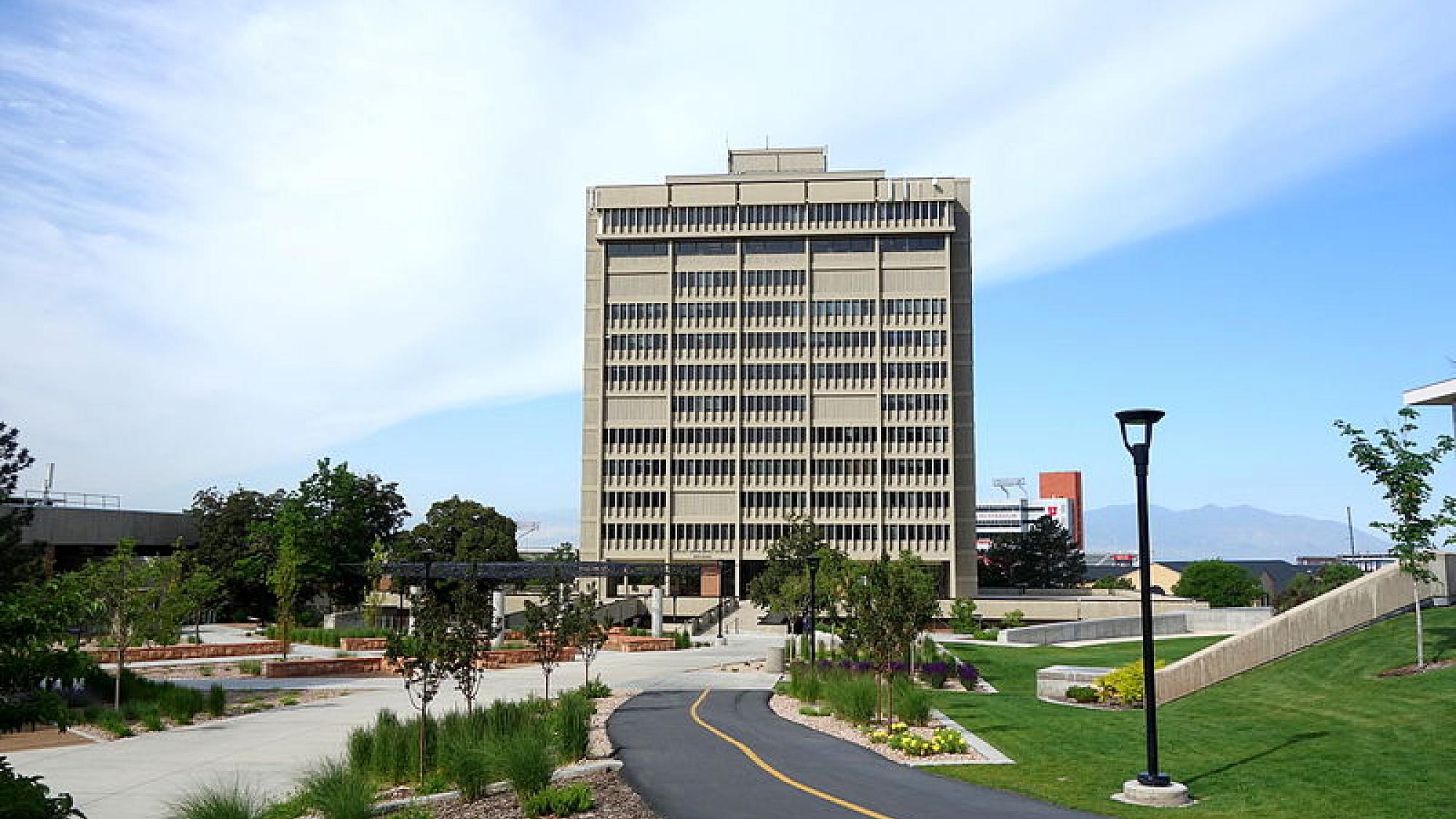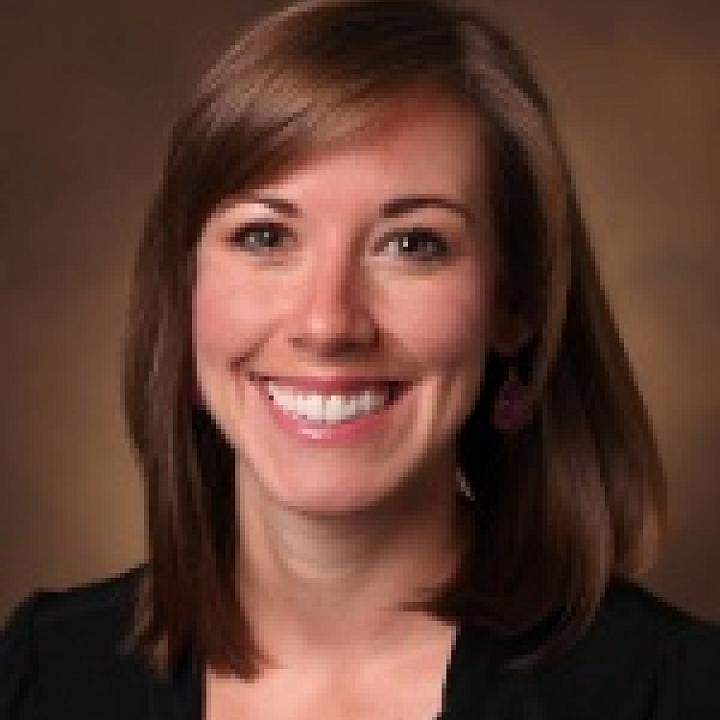Auditory Processing and Pediatric Listening Lab
The Auditory Processing and Pediatric Listening (APPL) lab conducts research aimed at improving our understanding of communication challenges faced by school-age children with and without hearing loss.
About the Lab
Research conducted in the APPL lab aims to improve our understanding of communication challenges faced by school-age children with and without hearing loss. We use a combination of subjective, behavioral, and electrophysiologic methods to learn about listening effort, attention allocation, and the effects of intervention (e.g., hearing aids, remote microphones) on communication. Results from our work provide valuable information to audiologists, speech-language pathologists, and teachers of children with hearing loss about environmental and child-specific characteristics that contribute to communication breakdowns.
Our Mission
We believe that hearing loss should not keep children and adolescents from fully experiencing their social and academic potential. Our mission is to conduct original research that improves our understanding of communication challenges faced by children in classrooms. As such, we seek to:
- Understand how childhood hearing loss and its associated interventions (e.g., hearing aids, remote microphones) influence the successful development of listening skills needed for academic success,
- Convey our research findings to the community,
- Involve undergraduate and graduate students in the research process to inspire future researchers and assist in the training of audiologists, speech-language pathologists, and deaf educators.
Current Studies
Can cochlear implants reduce listening-related fatigue?
Adults and children with hearing loss face repeated listening challenges and communication stress that can lead to listening-related fatigue. We are interested in understanding if listeners with hearing loss who receive a cochlear implant experience less listening-related fatigue than those who do not. In this study, participants are asked to complete a series of surveys about listening-related fatigue at various times during their pre- and post- surgery appointments. Adults and children (ages 6+ years) with hearing loss are invited to participate in this study.
Interested in participating?
If you are interested in enrolling yourself or your child in our studies, please complete this form, email us, or call us at 801-213-0860.
Frequently Asked Questions
If you are interested in enrolling yourself or your child in our studies, please complete this form or contact us directly.
The lab is located on the 12th floor of the Social and Behavioral Sciences Building on the main campus of the University of Utah.
Address
380 1530 E, Rm 1210
Salt Lake City, UT 84112
During your research visit, parking is free of charge. You can park in the Marriott Library/Campus Store lot with the code that is given to you by the research team.
Marriott Library/ Campus Store Parking Lot
100 1500 E,
Salt Lake City, UT 84112
Payment is administered differently for each study. For some studies, you will be asked to fill out a payment form and you should expect to receive a check in the mail within six weeks after your visit. For other studies, you or your child will receive cash.
No, we would prefer that your child did not miss school for any research visits. Lab personnel are able to complete research visits every day of the week, including evenings and weekends. We do our best to work with each family’s busy schedule. Please let us know how we can best work with your family’s schedule.
-
Alexander Graham Bell Association for the Deaf and Hard of Hearing
American Society for Deaf Children
American Speech-Language-Hearing Association
Hear to Learn Resources for Parents and Professionals
Hearing Loss Association of America
National Institute on Deafness and Other Communication Disorders
-
Gustafson, SJ, Newsome E, Piling, N. Segura, E. (2024). Survey of Collaboration Supporting Students who are Deaf and Hard-of-Hearing. Journal of Deaf Studies and Deaf Education, Advance online publication. {Free Version}
Gustafson, SJ, Nelson, L, & Silcox, JW. (2023). Effect of auditory distractors on Speech Recognition and Listening Effort. Ear and Hearing, 44, 1121-1132. {Free Version}
Gustafson, SJ, Ortiz, C, Nelson, L. (2023). Examining Test-Retest Reliability and the Role of Task Instructions when Measuring Listening Effort Using a Verbal Response Time Paradigm. Seminars in Hearing. {Free Version}
Gustafson, SJ, Flores, AN, & Newsome, E. (2022) Narrative Review of Loudness Perception Measures in Children. Ear and Hearing. Advance online publication. {Free Version}
Gustafson, SJ, Corbin, NE. (2021) Pediatric Hearing Loss Guidelines and Consensus Statements - Where do We Stand? Otolaryngologic Clinics of North America: 54 (6), 1129-142 [Free Version}
Flores, AN, Gustafson, SJ. (2022) Clinical Practice Patterns with Pediatric Loudness Perception Measures. American Journal of Audiology [Free Version]
Gustafson, SJ, Camarata, S. Hornsby, BWY, Bess, FH. (2021). Perceived listening difficulty in the classroom, not classroom noise levels, is associated with fatigue in children with and without hearing loss. American Journal of Audiology. [Free Version]
Gustafson, SJ, Ricketts, TA, Picou, EM (2021). Individual Differences Offer Insight into Clinical Recommendations for Directional and Remote Microphone Technology Use in Children. Journal of Speech, Language, and Hearing Research, 64(2), 635-650 [Free Version]
Gustafson, SJ, Grose, JH, Buss E. (2020). Perceptual Organization and Stability of Auditory Streaming For Pure Tones and /ba/ Stimuli. The Journal of the Acoustical Society of America, 148(2), EL159-EL165. [Free Version]
Gustafson, SJ, Billings, CJ, Hornsby, BWY, & Key, AP (2019). Effect of Competing Noise on Cortical Auditory Evoked Potentials Elicited by Speech Sounds in 7- to 25 year-old- Listeners. Hearing Research, 373, 103-112. [Free Version]
McGarrigle, R, Gustafson, SJ, Hornsby, BWY & Bess, FH. (2019). Behavioral Measures of Listening Effort in School-Age Children: Examining The Effects of Signal-to-Noise Ratio, Hearing Loss, and Amplification. Ear and Hearing, 40(2), 381-392. [Free Version]
Gustafson, SJ, Key, AP, Hornsby, BWY, Bess, FH. (2018). Fatigue Related to Speech Processing in Children with Hearing Loss: Behavioral, Subjective, and Electrophysiological Measures. Journal of Speech, Language, and Hearing Research, 61, 1000-1011. [Free Version]
Gustafson, SJ, Ricketts, T, & Tharpe, AM. (2017). Hearing Technology Use and Management in School-Age Children: Reports from Data Logs, Parents, and Teachers. Journal of the American Academy of Audiology, 28(10), 883-892. [Free Version]
Hornsby, BWY, Gustafson, SJ, Lancaster, H, Cho, SJ, Camarata, S, & Bess, FH. (2017). Subjective Fatigue in Children with Hearing Loss Using Self- and Parent-Proxy Reports. American Journal of Audiology, 26(35), 393-407. [Free Version]
Key, AF, Gustafson, SJ, Rentmeester, L, Hornsby, BWY, & Bess, FH. (2017). Speech Processing Fatigue in Children: Auditory ERP and Behavioral Measures. Journal of Speech, Language, and Hearing Research, 60(7), 2090-2104. [Free Version]
Bess, FH, Gustafson, SJ, Corbett, BA, Lambert, WE, Camarata, SM, & Hornsby, BWY. (2016) Salivary Cortisol Profiles of Children with Hearing Loss. Ear and Hearing, 37(3), 334-344. [Free Version]
Gustafson, SJ, Davis, H, Hornsby, BWY, & Bess, FH. (2015). Factors influencing Hearing Aid Use in the Classroom: A Pilot Study. American Journal of Audiology, 24(4); 563-568. [Free Version]
Gustafson, SJ, McCreery, R, Hoover, B, Kopun, J, & Stelmachowicz, PG. (2014). Listening Effort and Preceived Clarity for Normal Hearing Children With The Use of Digital Noise Reduction. Ear and Hearing: 35(2), 83-194. [Free Version]
Bess, FH, Gustafson, SJ, & Hornsby, BWY. (2014). How Hard Can it be to Listen? Fatigue in School-Age Children with Hearing Loss. Journal of Educational Audiology; 20. [Free Version]
Wiley, S, Gustafson, SJ, & Rozniak, J. (2013). Needs of Parents of Children who are Deaf/Hard of Hearing with Autism Spectrum Disorder. Journal of Deaf Studies and Deaf Education, 19(1), 40-49. [Free Version]
Gustafson, SJ, & Pittman, AL, & Fanning, R. (2013). The Effect of Tubing Length and Coupling Method on Real-Ear to Coupler Difference and Hearing threshold Measurements. American Journal of Audiology, 22, 190-199. [Free Version]
Gustafson, SJ, & Pittman, AL. (2011). Sentence Perception in Listening Conditions Having Similar Speech Intelligibility Indices. International Journal of Audiology; 50, 34-40. [Free Version]
Contact Us
Phone: 801-213-0860
Behavioral Health Science
380 1530 E, Rm 1210
Salt Lake City, UT 84112

